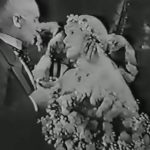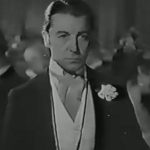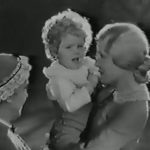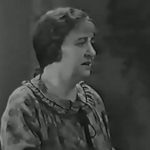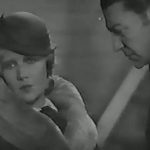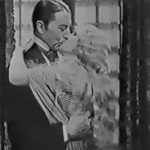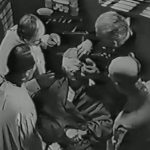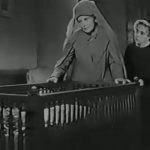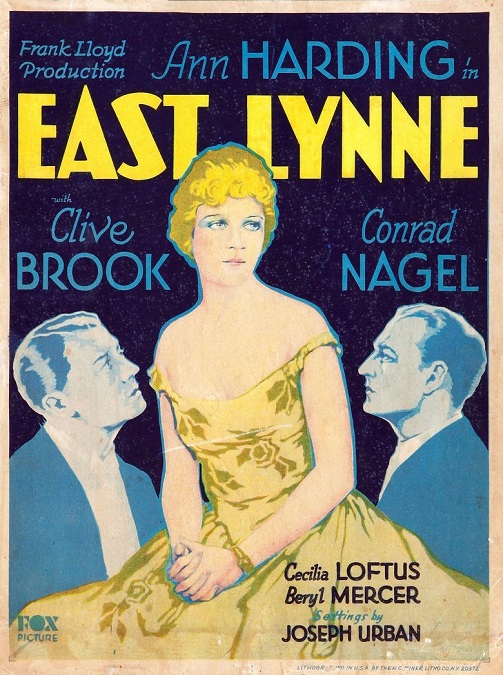

1930 – 1931 – East Lynne
Well, I was finally able to find a copy of this film, a few years after completing my reviews for Best Picture. Out of the blue, I found it on YouTube. Apparently it is a bootleg copy, and it is missing the last 12 minutes. The only existing original copy of the film is kept in the library at the University of California Los Angeles’s Instructional Media Lab, Powell Library. But watching most of the film is better than not watching any of it.
The film starred Ann Harding as Lady Isabella, a beautiful daughter of a penniless Earl. As the story begins, the Lady is being married to Robert Carlyle, played by Conrad Nagel, a wealthy lawyer who owns a mansion in the country called East Lynne. At the wedding, we are also introduced to Captain William Levinson, played by Clive Brook, a man with little money who has long been in love with Isabella. Robert takes his new bride home to East Lynne, but she is received coldly by Roberts sour old-maid of a sister, Cornelia, played by Cecilia Loftus.
After a few years of marital bliss, Lady Isabella has a child. But when it becomes apparent that she has become nothing more than a trophy wife for Robert, she allows herself to be kissed by the handsome Captain Levinson. Cornelia uses the infidelity to turn Robert against her and he divorces her, swearing that she will never see her son again. In utter despair, she ends up running away with the Captain. But when the captain gets caught accepting bribes at his job at the foreign embassy, he is fired, and exiled to Paris. Thus it was that the couple are stuck in France during the Prussian invasion. When the city is bombed, Captain Levinson is killed, and Isabella is injured so that she will eventually become blind. Still she refuses to accept blindness until she can see her son one last time.
I liked the movie well enough, but I think I would have liked it more if it wasn’t so short. It just felt like there was a lot more story there that was just left out. And when I did a little reading about the source material, I discovered that I was right. A lot was taken out of the original book, and some major plot points were put in. I other words, the basic plot elements were there, but the farther into the film we went, the less it resembled the original book.
The biggest change the script made was the addition of the Prussian War, which, as far as I’ve read, was not in the source material. It was a complete invention. In the book, Levinson doesn’t die. He fathers a child with her and then deserts her. And Isabella didn’t lose her sight in a bombing. It was a train wreck which, incidentally, killed Captain Levinson’s illegitimate child. The film ends with Isabella sneaking back into East Lynne to see her son who is dying of TB. The bootleg version I watched ended with her looking over the child’s cradle bed. Ah, reunited at last. But then the movie stopped, and I’m left wondering what else happened in the last 12 minutes.
But it was a popular novel, to be sure, first published in 1861. This was actually the seventh film version of the novel, the first six being silent films in 1912, 1913, 1916, 1921, 1922, and 1925. And then it was done again as a 1976 film, and yet again as a 1982 British TV movie.
I have to look at the four main characters to judge the caliber of the acting. Harding did a fine job, as it was really her story. My next favorite was Brook. I think he was nearly equal in talent with Harding. After that was Conrad Nagel, but unfortunately, it was a shame how much his part was reduced from what it was in the novel. He just had so little screen time. And lastly was Loftus. I sensed a lack of energy in her performance that didn’t necessarily satisfy the character of Cornelia.
The music was good, but ultimately unmemorable. The costumes were also pretty good, and I noticed that they did something that is actually very trivial, but I’m going to guess that it was intentional. People without money in the 1860s probably didn’t have much in the way of clothes, and so they didn’t have Isabella in a new fantastic gown in every scene. There was a dress or two that she wore in several scenes, which totally made sense for the character. I know… trivial, but I noticed.
All in all, it was a pretty average movie. Nothing wrong with it at all, but nothing that stood out to me as above average. It’s too bad, because with all the original material that was cut from the finished script, it probably could have been a lot better. I mean, the film was 1½ hours long. When you add back in the missing 12 minutes, it is nearly 1¾ hours long. Plenty of time to keep some of the juicier elements from the book in, not to mention the back-stories for the lead characters.
And finally, I have to mention that there were several parts of the film that reminded me very strongly of the 1940 Best Picture winner, Rebecca. I wonder if Hitchcock drew any inspiration from this earlier film.
